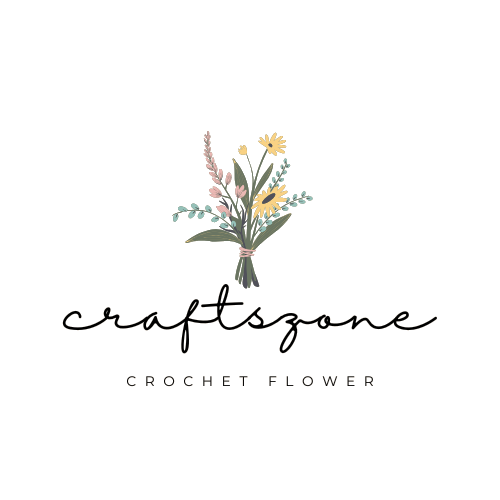As the world becomes more conscious of environmental issues and ethical consumerism, handmade crochet flowers are playing an increasingly significant role in shaping sustainable choices. Consumers are seeking out products that align with their values of environmental responsibility, fair trade, and supporting local artisans. Handmade crochet flowers offer a solution to these demands, promoting sustainability, reducing environmental impact, and contributing to a more mindful way of consuming. This shift toward handmade products is part of a broader movement where sustainability and craftsmanship go hand in hand.
1. Reducing Waste and Overproduction
Mass-produced goods often result in overproduction, leading to excess waste. Handmade crochet flowers, on the other hand, are usually made in smaller quantities or made-to-order, which minimizes waste and avoids the pitfalls of mass production. Artisans typically use only the materials they need, and many even incorporate recycled or upcycled materials into their work. By reducing the demand for large-scale manufacturing, handmade crochet flowers contribute to a decrease in industrial waste, making them a more eco-friendly choice for consumers.
2. Sustainable Materials and Practices
Handmade crochet flowers are often crafted from natural, renewable, or recycled materials. Artisans prioritize the use of eco-friendly materials, such as organic cotton, bamboo yarn, or plant-based dyes, ensuring their products have a smaller environmental footprint. Additionally, many artisans rely on low-impact production processes that use less energy compared to factory manufacturing. These sustainable practices align with the growing trend of eco-conscious consumerism, where buyers seek to make responsible choices that support the planet.
3. Supporting Local Economies and Fair Trade
One of the key aspects of buying handmade crochet flowers is the opportunity to support local economies. When consumers purchase handmade goods, they are directly contributing to the livelihoods of artisans and small business owners, both locally and globally. This support extends beyond just financial transactions; it helps sustain traditional craftsmanship, cultural heritage, and artisanal skills that are often passed down through generations. In many cases, artisans rely on fair trade practices, which ensure they receive fair wages and work under humane conditions, further aligning with ethical consumer values.
4. Craftsmanship and Durability
Handmade crochet flowers are typically designed with longevity in mind. Because artisans put significant time and effort into each piece, these items are made to last. This stands in stark contrast to the throwaway culture associated with many mass-produced goods, which are often cheap, disposable, and meant to be replaced frequently. The durability of handmade crochet flowers means they can be treasured for years, reducing the need for constant replacement and ultimately lowering the environmental impact associated with frequent consumption.
5. Mindful Consumerism
Handmade crochet flowers encourage a more mindful approach to shopping. When consumers choose handmade, they are often selecting pieces that carry personal meaning or tell a story. This contrasts with the impulse-buying habits that dominate mass-market retail. By fostering a deeper connection between the consumer and the product, handmade goods inspire more thoughtful purchasing decisions. Buyers take the time to understand the craftsmanship and appreciate the value of a unique, one-of-a-kind item, which leads to a more intentional and sustainable approach to consumerism.
6. The Role of Technology in Promoting Sustainability
While handmade crochet flowers are traditionally associated with artisanal craftsmanship, technology has played an essential role in connecting consumers with sustainable options. Online marketplaces and social media have made it easier than ever for eco-conscious shoppers to find and purchase handmade goods from around the world. Artisans can use digital platforms to showcase their sustainable practices, share the story behind their work, and educate consumers about the environmental benefits of choosing handmade. This has opened up new opportunities for artisans to reach a global audience, further promoting the sustainability movement.
7. Upcycling and Repurposing Materials
Many crochet artisans are leading the way in upcycling and repurposing materials, turning what would otherwise be waste into beautiful, functional items. From bouquets made of discarded yarn to decorative arrangements crafted from recycled fabric, these products are examples of how creativity can transform waste into valuable goods. This approach not only reduces the strain on natural resources but also showcases the innovative potential of sustainable craftsmanship. Consumers who prioritize eco-friendly choices are increasingly drawn to these upcycled products, which offer a unique blend of creativity and sustainability.
8. The Impact of Handmade on the Floral Industry
The floral industry is known for its environmental impact, particularly in the case of fresh flowers, which require extensive resources for cultivation, transportation, and refrigeration. However, the handmade movement offers a sustainable alternative. Artisans who create handmade crochet flower arrangements often focus on quality craftsmanship, producing long-lasting pieces that eliminate the need for frequently replaced fresh flowers. These crochet arrangements are designed to last indefinitely, reducing waste and encouraging consumers to invest in timeless floral décor that minimizes their environmental footprint.
9. Conclusion
Handmade crochet flowers are not just a trend—they represent a shift in consumer values toward sustainability, ethical practices, and thoughtful consumption. As more people seek out eco-friendly and socially responsible products, handmade goods are becoming a key part of the solution. By supporting artisans, reducing waste, and choosing high-quality, durable items, consumers can make a positive impact on the environment and contribute to a more sustainable future. Handmade crochet flowers embody the values of sustainability, craftsmanship, and mindful consumerism, making them an increasingly popular choice for those looking to align their purchases with their values.
This article highlights the role handmade crochet flowers play in fostering sustainable consumer choices, from reducing waste and supporting artisans to promoting eco-friendly practices.
